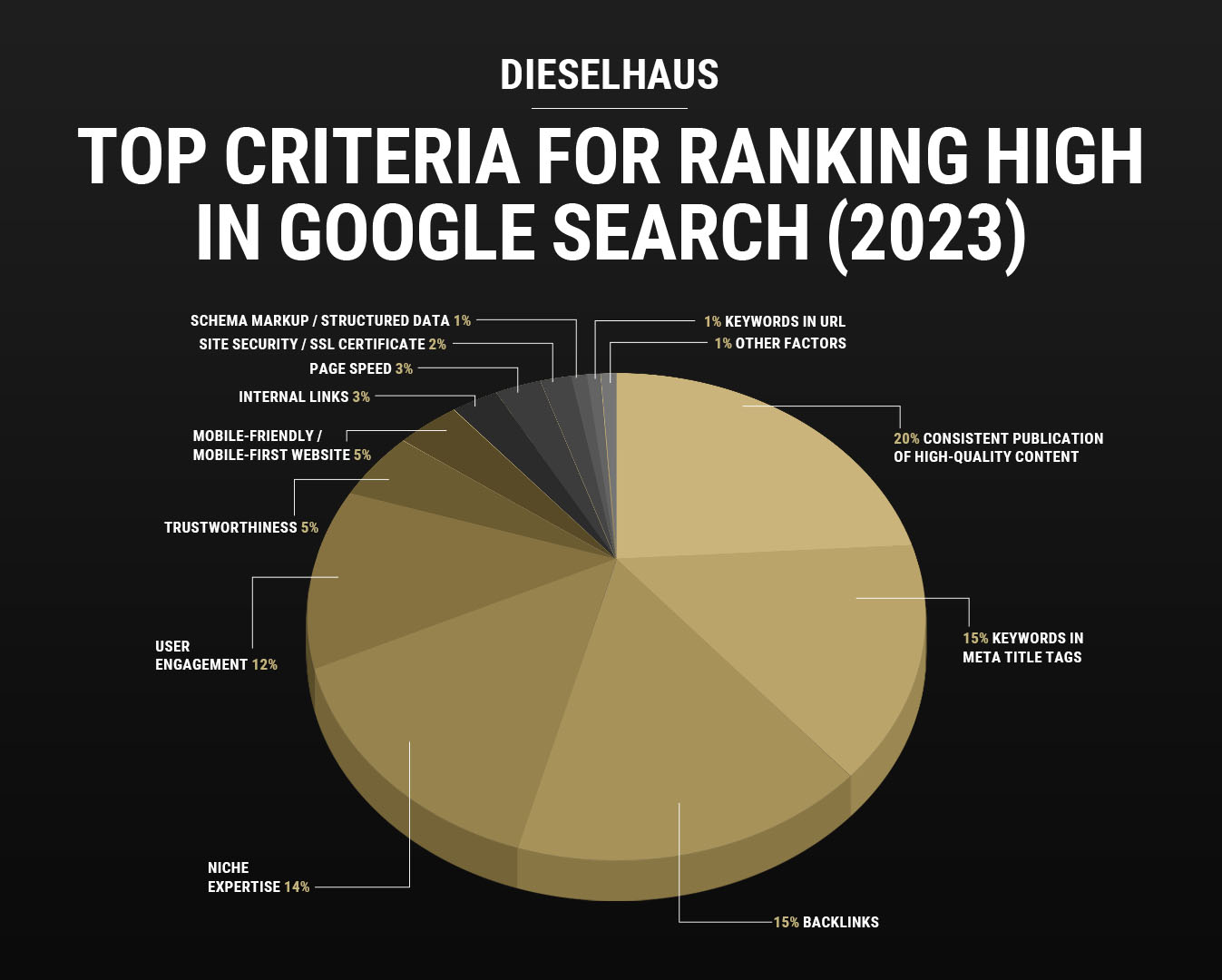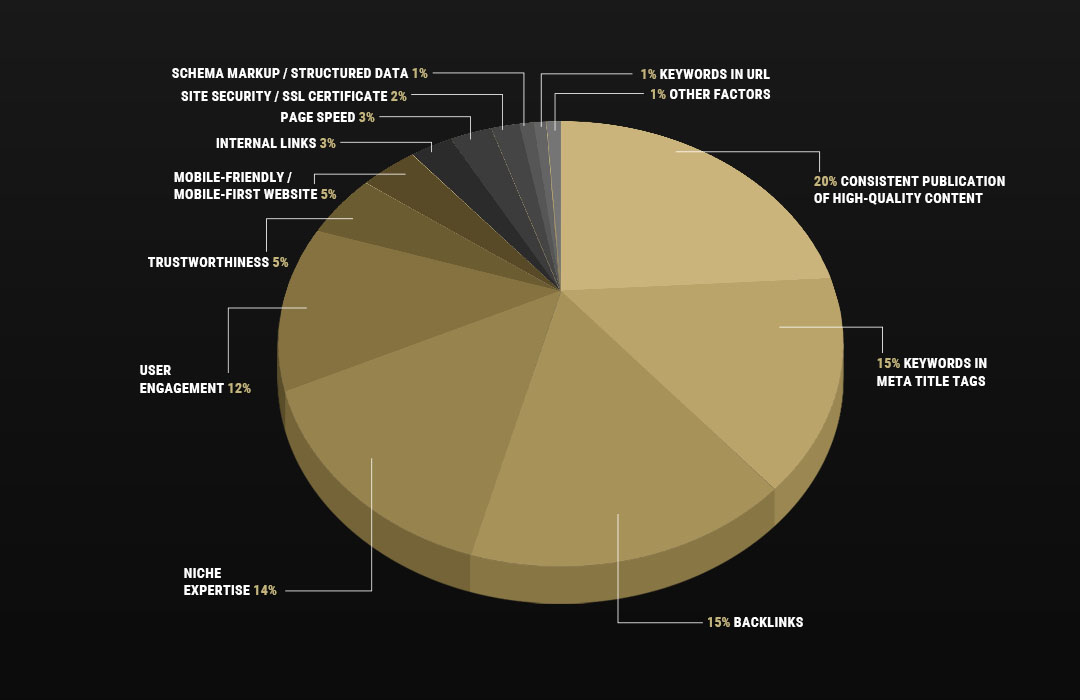In 2023, Google’s algorithm is simpler and focuses on valuable content, trustworthiness, user engagement, and mobile-friendliness. Creating good content, using reliable sources, and making your site mobile-friendly are key to ranking well.

Google has major made changes, affecting how websites are ranked in search results. Here’s what you need to know:
- Trustworthiness Matters: Google now cares about whether content is trustworthy. It’s a small part of the ranking formula (5%). Google uses AI to check if content is true and has introduced updates to review financial and health advice pages. To improve this, use reliable sources and avoid unproven claims.
- Engaging Content Still Key: Content that engages users is important. It’s the top factor (24%) for ranking. Google wants pages that fulfill what users search for. High-quality content posted frequently gets rewarded.
- Niche Expertise Helps: Having a bunch of good pages on a particular topic (13%) is valued. For instance, if you’re into CRM software, having pages on related topics can help. It attracts visitors searching for those keywords.
- User Engagement Matters More: How users interact with your content (12%) is now even more important. Google watches if users stay on pages, click around, etc. This helps Google know if the content is useful.
- Backlinks Still Count: Other websites linking to yours (15%) is still important, though not as much as before. It shows trust. Good content can naturally attract links.
- Keywords in Titles Less Crucial: Having the exact keyword in page titles (15%) is a bit less important. Google now understands variations of keywords.
- Internal Links Reduced: Links within your website (3%) have lost importance. Trustworthiness gained some of its share. Internal links still help but aren’t as crucial.
- Keywords in Header Tags No More: Using keywords in header tags is no longer a factor.
- Mobile-Friendly Is a Must: Your website should be easy to use on phones. Google prefers mobile-friendly sites and expects mobile users as the main audience.
- Page Speed Matters: Your site should load quickly (3%). Slow sites lose ranking ability. Faster is better.
- Site Security is Vital: Google wants safe sites. Having an SSL certificate (the “s” in “https”) is important.
- Schema Markup Helps: Adding special code to your site helps Google show more useful search results. It’s like adding extra info for Google.
- Keywords in URL Still Good: Putting keywords in the page’s web address is still helpful, though not a big factor.
- Other Factors Matter Less: There are other factors (21 in total) that can affect ranking, like keyword placement in meta tags and offsite mentions of your brand. They matter less and not everyone needs to focus on them.
In 2023, Google’s algorithm is simpler and focuses on valuable content, trustworthiness, user engagement, and mobile-friendliness. Creating good content, using reliable sources, and making your site mobile-friendly are key to ranking well.
Get Started

















